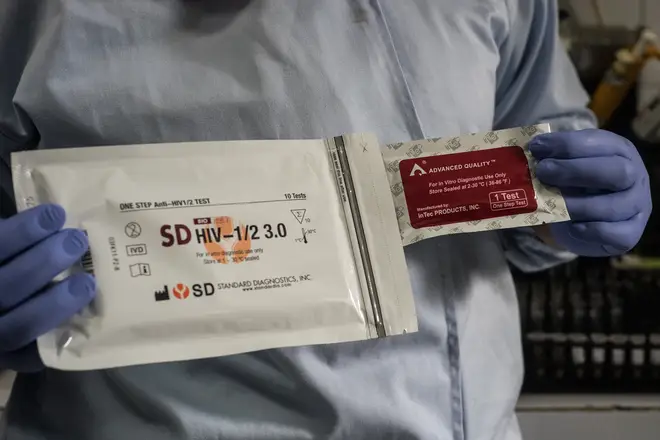
Nick Ferrari 7am - 10am
16 January 2020, 13:04

The number of people diagnosed with HIV in the UK has rapidly declined in the last five years, according to Public Health England (PHE) figures.
The data shows that HIV transmission continues to drop, while the number of people who are unaware they have the virus is also falling.
In 2014, there were an estimated 2,300 HIV transmissions among men who have sex with other men, falling to 800 in 2018 - a 71.4 per cent drop.
The number of men who have sex with other men who are living undiagnosed with HIV has also halved since 2014 from an estimated 7,000 to 3,600 in 2018.
Meanwhile, the number of new HIV diagnoses among heterosexual people has almost halved over the past decade, from 3,400 in 2009 to 1,940 in 2018.
Almost half of adults diagnosed in 2018 who acquired HIV heterosexually were born in a country with high HIV prevalence.
PHE said methods aimed at tackling HIV spread, such as the use of condoms, testing in a wide range of settings, starting antiretroviral therapy (ART) as soon as possible if positive and the availability of Pre-exposure Prophylaxis (PrEP) for those who are negative, were working.

Health Secretary Matt Hancock said: "I feel very strongly that we must end HIV transmission.
"HIV has brought untold hurt and suffering to so many so it is encouraging to see transmissions continue to fall across the UK.
"We are well on our way towards our ambition of zero HIV transmissions by 2030 and we should be rightly proud of the incredible progress we have already made."
Dr Noel Gill, head of sexually transmitted infections and HIV at PHE, said: "We are well on our way to reaching the goal of eliminating HIV transmission by 2030, with the rapid fall in HIV transmission continuing in 2018 and nearly all of those diagnosed receiving treatment that prevents onward transmission.
"Testing is a key part of the UK's success. If you have HIV you can benefit from life-saving treatments that also prevent further transmission of the virus.
"Certain groups of people are at higher HIV risk and are advised to have regular tests, including men and women who have had unprotected sex with new or casual partners from countries where HIV is common, who should test every year, and men who have sex with men.